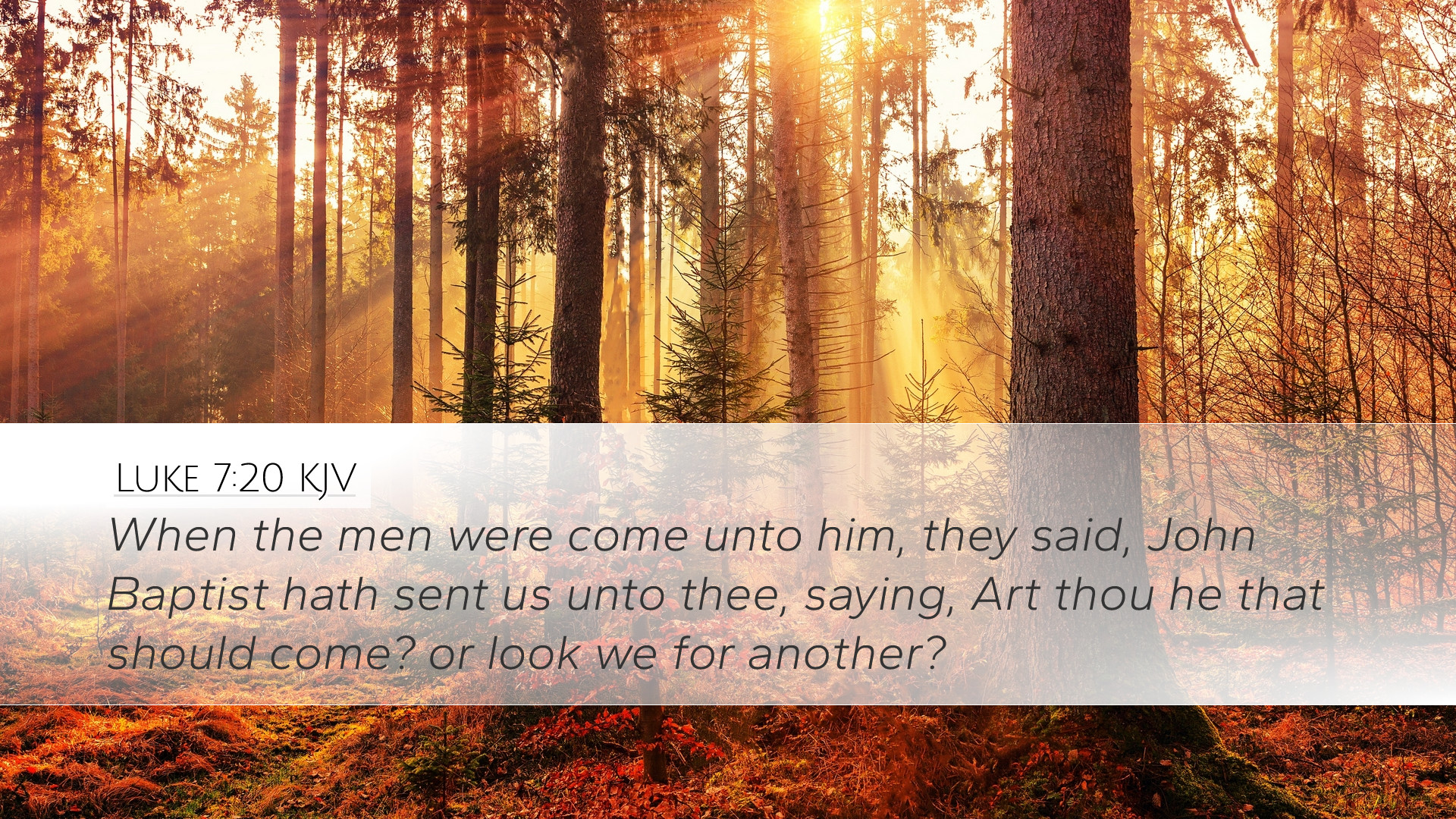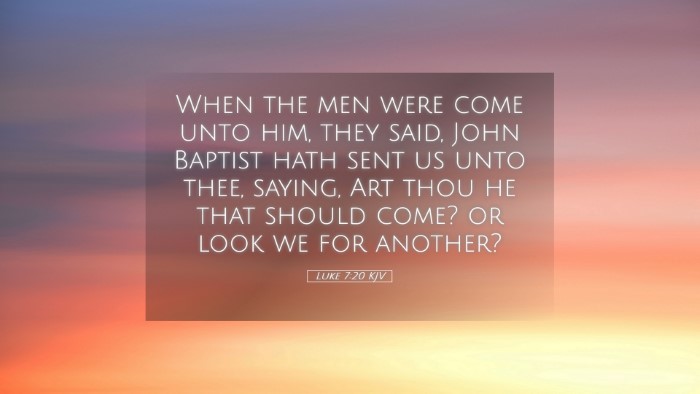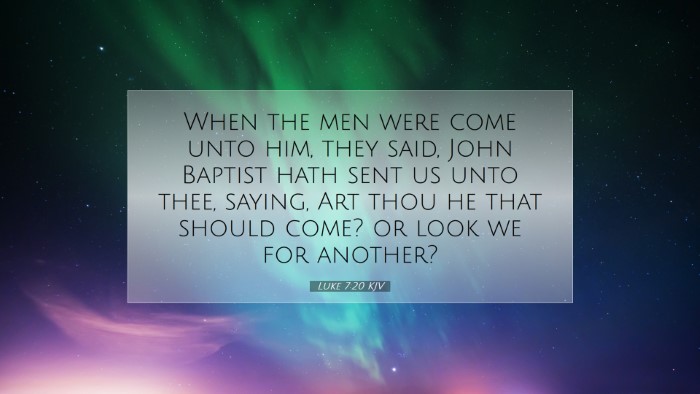Commentary on Luke 7:20
Bible Verse: "When the men had come to Him, they said, 'John the Baptist has sent us to You, saying, "Are You the Coming One, or do we look for another?"'" (Luke 7:20, NKJV)
Introduction
This pivotal verse occurs in a moment characterized by doubt and inquiry. John the Baptist, who heralded the coming of the Kingdom, now sends messengers to Jesus seeking confirmation of His identity. This begs a deeper exploration into the nature of faith, expectation, and the fulfillment of God’s promises as exhibited in the ministry of Christ.
Contextual Background
In the previous chapters of Luke, we find John’s ministry of prophecy and baptism. However, as he languishes in prison, doubts arise about Jesus’ messianic role. The inquiry reveals a significant aspect of human experience—faith wrestling with uncertainty.
Commentary Insights
- Matthew Henry: Henry emphasizes that John, despite his earlier declarations of Christ's identity, experiences doubt in a moment of trial. He observes that raw, human emotions can cloud one’s understanding of spiritual truths, illustrating that even the greatest prophets can experience moments of fear and uncertainty.
- Albert Barnes: Barnes notes the importance of John's question as it encapsulates the messianic expectations of Israel. He suggests that John's inquiry serves as a means of pointing both himself and his disciples towards a deeper faith in the fulfilling of God's promises through Christ. This inquiry also highlights the necessity for personal assurance in faith.
- Adam Clarke: Clarke addresses the profound implications of the question raised. He interprets it as an example of prophetic humility, suggesting that even a figure as esteemed as John the Baptist sought further confirmation from Christ. This action shows an essential lesson of seeking truth in uncertainty.
Theological Implications
The question posed by John’s disciples paves the way for deep theological discussions regarding doubt, faith, and the nature of Christ’s kingdom. Each commentator brings to light different aspects of this theological inquiry.
Doubt and Faith
John’s inquiry indicates a natural human response when faced with dire circumstances. Matthew Henry points out that doubt can arise despite previous convictions and experiences of faith. This illustrates the journey believers often navigate as they confront hardships.
The Coming One
John the Baptist’s question about Jesus being "the Coming One" reflects the messianic hope within Jewish theology. Many expected a political liberator; thus John’s inquiry highlights a crucial moment of realization and re-evaluation of expectations. Here, Barnes provides insight that the understanding of the Messiah’s role is often more profound than anticipations lead one to believe.
Jesus’ Response in Context
While this commentary does not dwell on Jesus' direct response (found in the subsequent verses), it is essential to highlight that His answer and actions validate John’s faith and ministry. These reinforcing actions showcase Jesus’ fulfillment of messianic prophecy and offer assurance to those struggling with doubt.
Importance of Inquiry
This moment serves to highlight the significance of seeking understanding in faith. Adam Clarke expounds that true faith does not shy away from questions; rather, it fosters deeper engagement with God. This encounter calls pastors and scholars to encourage open dialogues about doubt and faith within their congregations and studies.
Practical Applications
The lessons drawn from Luke 7:20 can resonate profoundly in contemporary ministry and theological studies. The interplay of doubt and faith invites both pastors and laypersons to engage actively with the scripture, providing a framework for compassionate pastoral care.
- Encouraging Honest Dialogue: Create an environment within congregations where questioning is welcomed, facilitating a space for exploration of faith.
- Affirming Spiritual Journeys: Acknowledge that doubt is part of the spiritual journey, encouraging individuals to seek clarification and understanding.
- Highlighting Christ’s Reassurance: Remind congregants of the ways Christ assures us of His identity and presence in our doubting moments.
Conclusion
Luke 7:20 serves as a powerful reminder of the complexity of human faith amidst trials. Through the insights of Matthew Henry, Albert Barnes, and Adam Clarke, we see that doubt does not negate faith but rather can be a catalyst for deeper understanding. As we bear witness to John the Baptist's inquiry, may we embrace the journey of faith with humility, seeking Christ in our moments of uncertainty.


